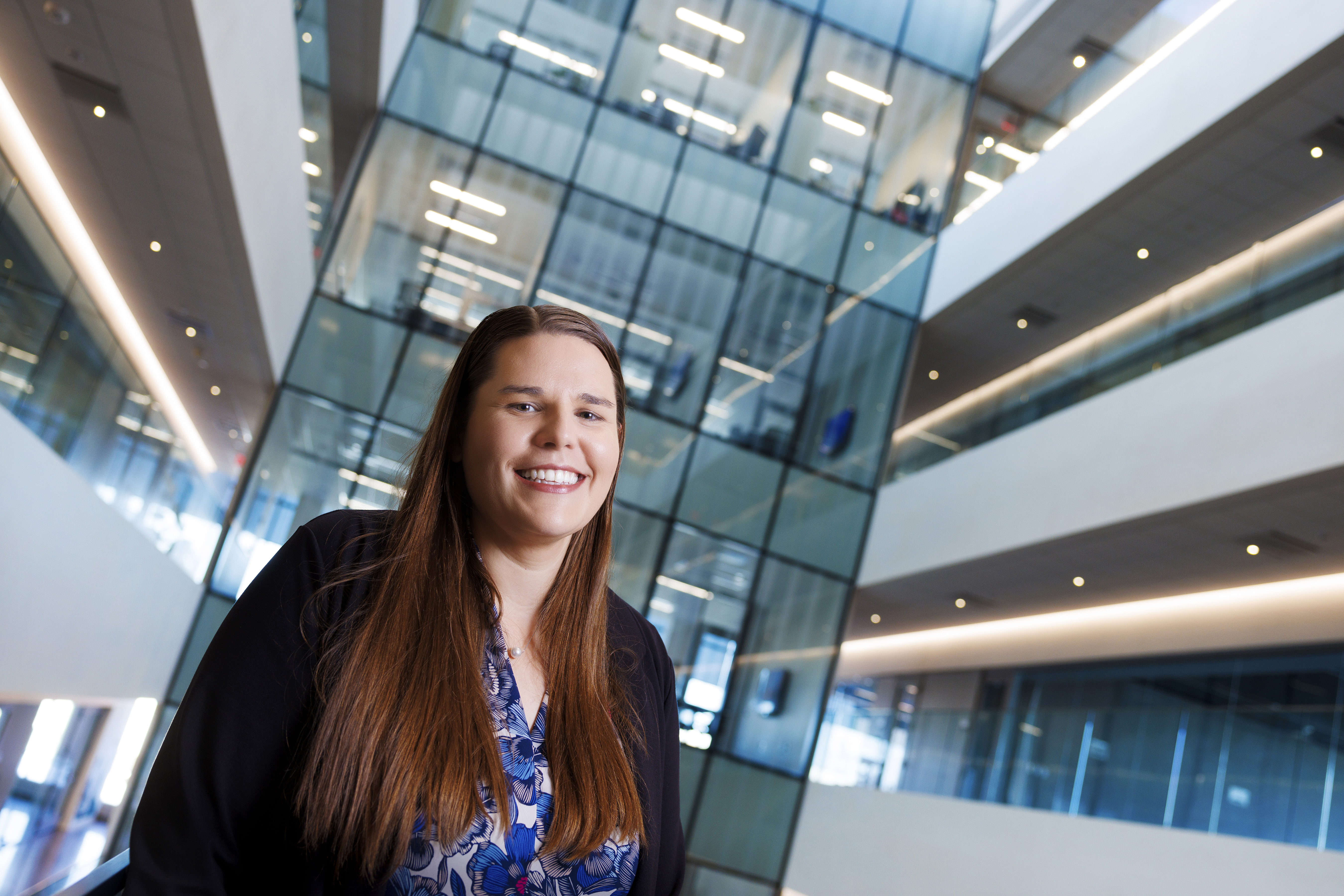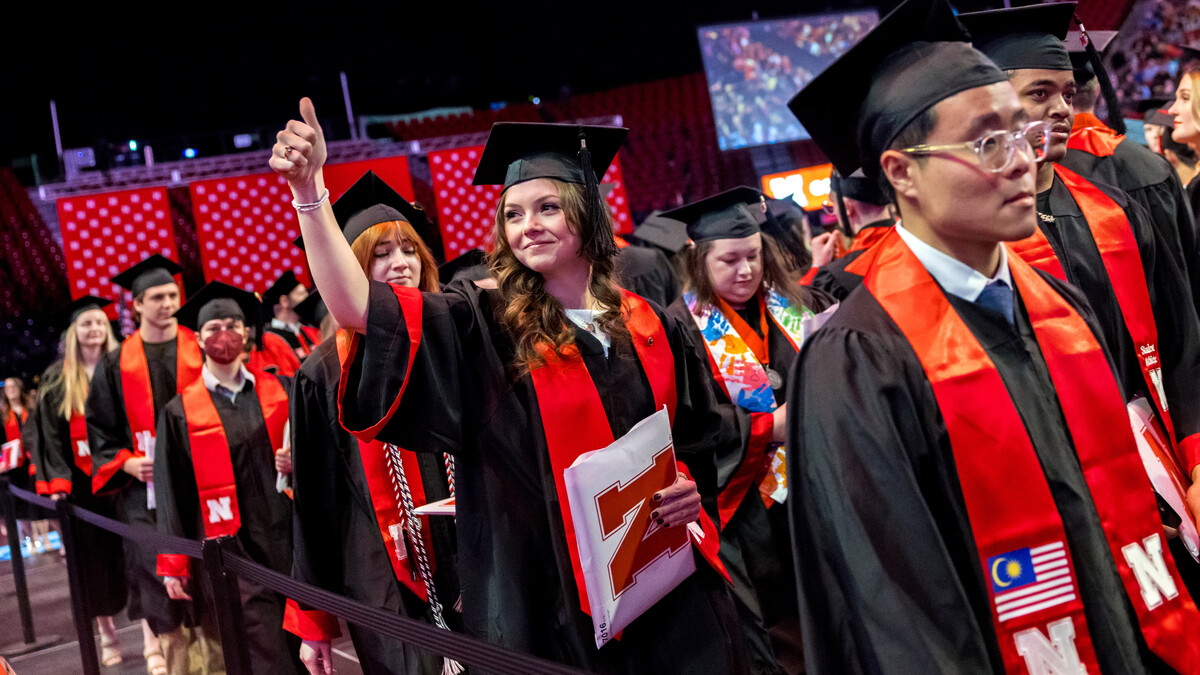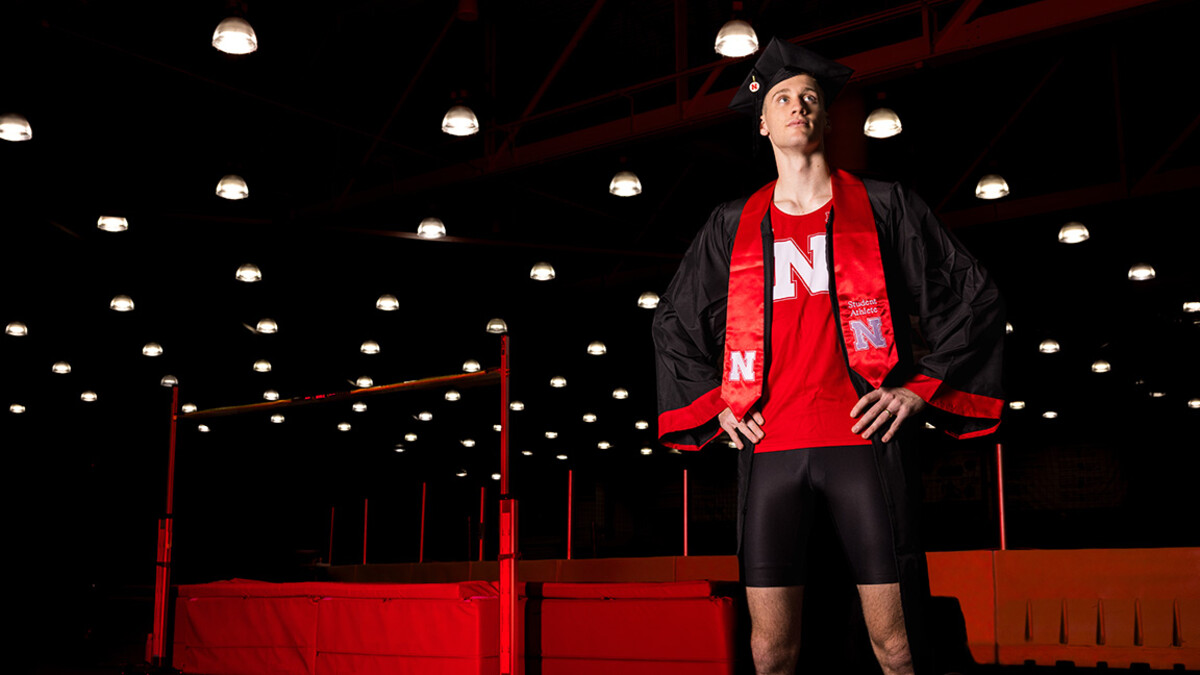
Despite widespread recognition of the need to increase the number and diversity of future engineers, universities struggle to retain engineering majors. The national attrition rate for these students hovers around 50%, and half of those departures occur during freshman year.
One factor correlated to attrition is that without strong visuo-spatial skills, it is difficult for students to succeed in engineering courses. These skills refer to the ability to manipulate, organize and make sense of spatial relationships — and research shows that women and students from lower socioeconomic status groups lag behind their counterparts in this domain.
Husker researcher Grace Panther, an expert in engineering education, aims to develop engineering pedagogy — methods of teaching — where strong visuo-spatial skills are less central to success. With a five-year, $650,000 grant from the National Science Foundation’s Faculty Early Career Development Program, she will advance her work to create pedagogy that is more inclusive and equitable, enabling students with a wide range of visuo-spatial skills to earn engineering degrees and join the STEM workforce.
To do this, Panther will explore the tools and strategies currently used by successful students with varying levels of visuo-spatial skills to navigate engineering coursework, as well as the ways that visuo-spatial language and gestures are embedded in civil engineering courses. She will then bring instructors and students together to co-develop course activities that are inclusive to a broader group of students.
“The end goal is creating methods of teaching that, regardless of your spatial skills, you can still be successful,” said Panther, assistant professor of engineering education at the University of Nebraska–Lincoln. “The presentation of content shouldn’t rely so heavily on a single skill.”
To this point, much of the research in engineering education has used a deficit perspective: Researchers identify so-called shortcomings that limit student success in engineering, then develop approaches to remedy these “deficiencies.” Panther is adopting an assets-based strategy that explores how students marshal the talents they do have to overcome academic challenges.
It is the first study to investigate engineering students’ visuo-spatial strategies from an anti-deficit perspective. It is also the first such in-depth exploration of a single discipline, civil engineering, within the larger field.
“Researchers have been doing this work for several decades, and we haven’t really moved the needle as far as who’s coming into engineering,” Panther said. “That’s what shifted my thought process. The underpinning of what I’m doing is looking at this with an assets-based approach: What are students bringing with them to engineering to navigate challenges?”
A fresh perspective is needed because of the disconnect between engineering coursework and industry practice. Though visuo-spatial skills are pivotal for classroom success, research shows they are less crucial in the day-to-day life of an engineer.
To lay the groundwork for a retooling of the methods used to teach content, Panther will track a group of about 10 students with varying levels of spatial skills as they progress through the four-year civil engineering program. She will interview them once a semester to learn about their strategies for success, with a particular focus on how they steer through visuo-spatial information.
She will also explore how instructors teach various engineering concepts, particularly how they use language and gestures to convey visuo-spatial information in core civil engineering courses. Panther will observe about 15 engineering classes and study course materials like syllabi, homework assignments, textbooks and online resources to collect this data.
Then, to translate the research into practice, student interviewees and engineering instructors will come together in a series of workshops to co-develop new course materials — lecture notes, in-class activities, assessments and videos — designed to be accessible to students across the visuo-spatial skill spectrum. Panther will make these materials available to instructors through her website, YouTube and presentations at national and international conferences.
Through her CAREER project, Panther will also train and mentor undergraduate and graduate students in engineering education research, which is part of the growing field of discipline-based education research. By exposing students to her work and sharing her findings with faculty, Panther will strengthen the training pathway for engineering education researchers and help faculty understand the field’s value. This will help Panther and UNL colleagues work toward developing a standalone doctoral program in engineering education — which they hope to launch in the next several years — and aligns with national momentum toward creating more avenues into engineering education research.
Panther said the larger aim of her research is to diversify the engineering profession, which is key to designing solutions that work for all people. The classic example is car safety: Safety features in cars were designed with crash dummies modeled after the average male, leaving women more susceptible to injury and death from car accidents.
“Having diverse perspectives in engineering is really important to solving these big problems that we’re facing as a society,” she said.
The National Science Foundation’s CAREER award supports pre-tenure faculty who exemplify the role of teacher-scholars through outstanding research, excellent education and the integration of education and research.








